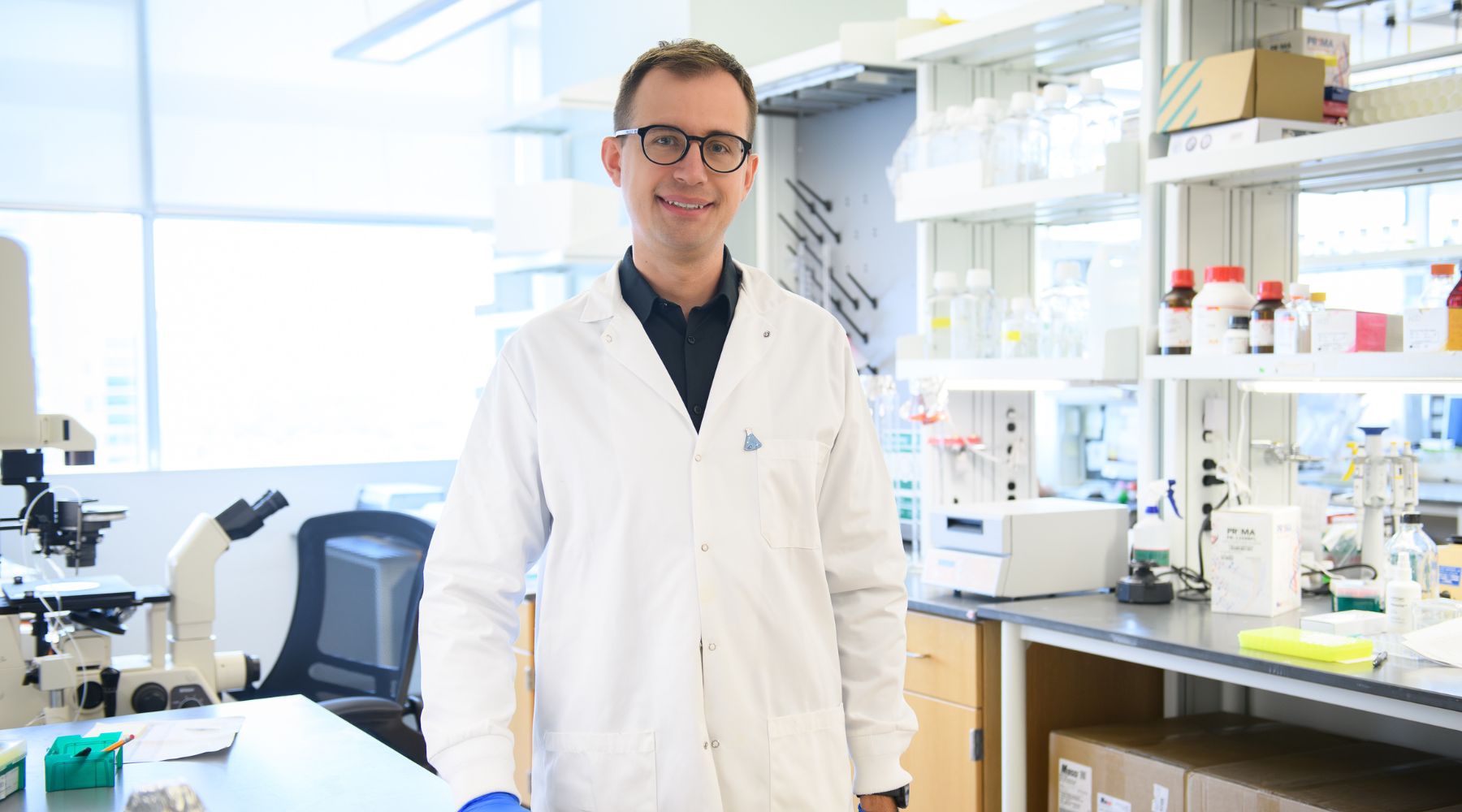With a new three-year grant from the American Heart Association, a scientist at the Oklahoma Medical Research Foundation will study a common and life-threatening heart condition.
Kamil Kobak, Ph.D., will focus on the connection between age-related muscle loss and a disorder known as heart failure with preserved ejection fraction, or HFpEF. In this condition, stiffening of the heart prevents it from relaxing sufficiently between beats. As a result, the main pumping chamber doesn’t adequately fill with blood.
HFpEF accounts for at least half of all cases of heart failure. Up to 5% of Americans are believed to have the disorder, with a much higher rate among older groups, particularly those in southern states. More than half of those diagnosed with HFpEF die within five years.
“It’s a complex condition that involves dysfunction of several organs, and older people with HFpEF often have other chronic diseases like diabetes, high blood pressure and kidney disease, which helps explain the high mortality rate,” Kobak said. “Current treatment options for HFpEF aren’t very effective.”
Working under the guidance of fellow OMRF scientist Ann Chiao, Ph.D., Kobak hopes to better understand why muscle health breaks down as HFpEF develops. That knowledge, he said, could lead to a focus on improving muscle health to mitigate the heart condition.
“We know that exercise benefits the heart, and that becomes even more important as we age,” Chiao said. “People with this heart condition often lack the energy to exercise, so it becomes a vicious cycle of chronic disease.”
Chiao hopes the work could pave the way for future treatments. “Dr. Kobak’s research could lay the beginning groundwork for medications that reduce or even break this vicious cycle,” she said.
The AHA has awarded research grants since 1949. Studies funded by the organization have led to Nobel Prizes and to breakthroughs including the development of artificial heart valves and cholesterol-lowering medications.
Kobak was the only Oklahoma-based researcher during the current grant cycle to receive the AHA’s Career Development Award. He previously received a two-year postdoctoral fellowship from AHA, and the new grant provides $231,000 in funding through 2028.



